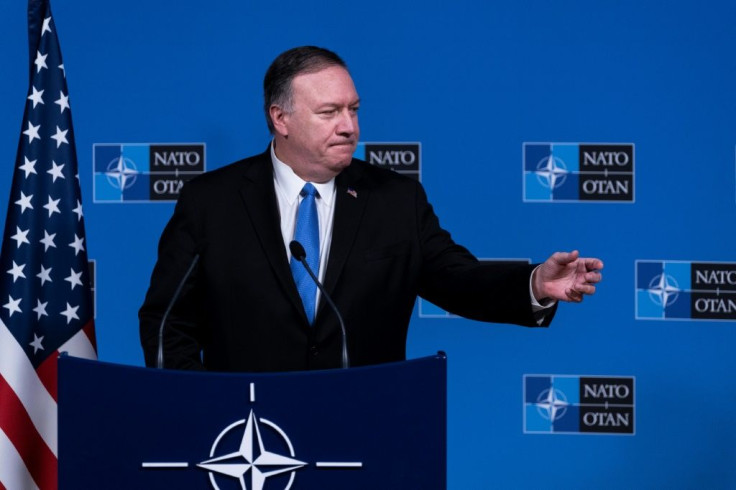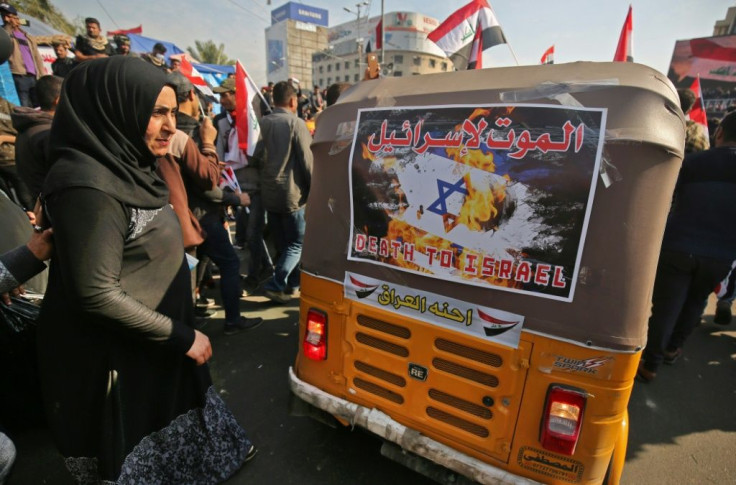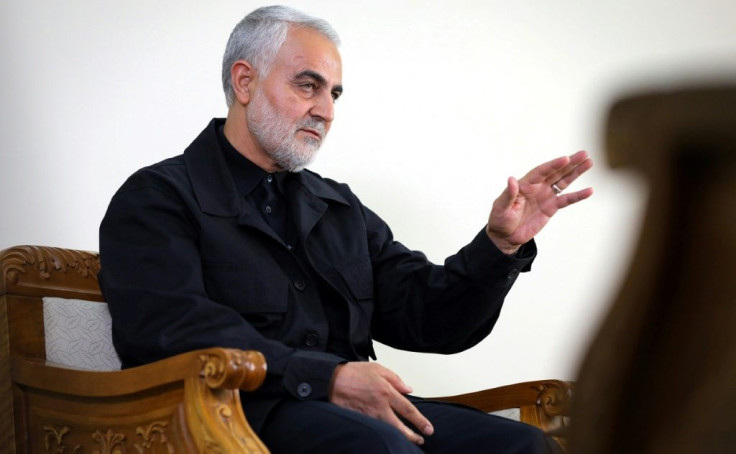Warning Iran, US Slaps Sanctions On Iraqi Paramilitary Leaders

The United States on Friday imposed sanctions on three Iranian-backed Iraqi paramilitary leaders over a deadly crackdown on protests in the country, as it warned Tehran to stay out of its neighbor's affairs.
The move comes as President Donald Trump's administration, which considers Iran an arch-enemy, voices alarm at rising attacks on US forces' bases in Iraq blamed on armed Shiite groups backed by Tehran's clerical regime.
"The Iraqi people want their country back. They are calling for genuine reform and accountability and for trustworthy leaders who will put Iraq's national interests first," Secretary of State Mike Pompeo said in a statement.
He announced sanctions on three Iraqis -- Qais al-Khazali, Laith al-Khazali, and Hussein Falil Aziz al-Lami -- who are part of the Shiite paramilitary force Hashed al-Shaabi.
They were designated under a law that will seize any assets they have in the United States and ban them from visiting.
The United States -- which invaded Iraq in 2003 in a controversial war of regime change that led to chaos in the country -- has increasingly accused Iran of interference in its neighbor, which shares a Shiite majority.
Some 430 people have died across Iraq as security forces and paramilitaries cracked down on two months of protests triggered by concerns over unemployment and corruption.
Nine more demonstrators were killed Friday after unidentified men in pick-up trucks attacked a building where anti-government protesters had been camped out for weeks, witnesses told AFP.

The demonstrations led to the resignation of prime minister Adel Abdel Mahdi, a close ally of Iran who nonetheless managed a warm relationship with the United States.
As Iraqi parties seek to form a new government, General Qasem Soleimani -- the head of the Iranian Revolutionary Guard Corps' elite Quds Force -- has traveled to Baghdad in a show of influence.

David Schenker, the top US diplomat for the Middle East, said that the Iranian commander's presence in Baghdad was "not normal."
"It is unorthodox and it is incredibly problematic and it is a huge violation of Iraqi sovereignty," Schenker told reporters.
"We are encouraging neighbors not to meddle and undermine the constitution of the country," he said.
Schenker did not rule out imposing sanctions on more Iraqis including government officials.
Separately, Pompeo announced sanctions on one Iraqi politician, Khamis Farhan al-Khanjar al-Issawi, on bribery allegations.
The United States says Iran has moved missiles into Iraq and has pointed the finger at Tehran over a rising number of sophisticated but non-lethal rocket attacks on US bases.
In the latest incident, two rockets hit Al-Balad air base, north of Baghdad, late Thursday, US officials said.
"We're waiting for full evidence, but if past is prologue, then there's a good chance that Iran was behind it," Schenker said.
Tensions have soared between the United States and Iran since Trump last year withdrew from a denuclearization deal and imposed sweeping sanctions.
US officials say they are considering sending 5,000 to 7,000 troops to the region to counter Iran, although Defense Secretary Mark Esper on Friday again denied a report that a 14,000-strong deployment was under discussion.
The friction over Iraq comes after Iran itself put down widespread protests that erupted on November 15 following a sudden hike in fuel prices.
© Copyright AFP 2024. All rights reserved.




















